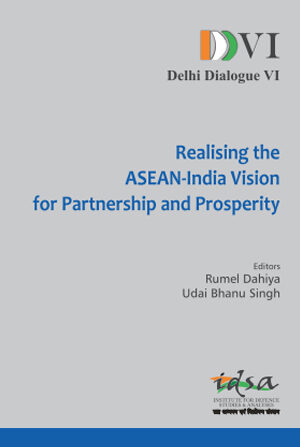The ‘Orchid Revolution’ in Singapore
The PAP needs to make itself more responsive to the common Singaporean’s demands in order to remain the single-most powerful representative of the people of Singapore.
- Rahul Mishra
- September 30, 2011

The South East Asia and Oceania Centre focuses on policy-relevant research with respect to the ten ASEAN states, East Timor and Oceania, including Australia and New Zealand. The Centre studies India’s bilateral and multilateral relations with states of the region with a view to providing contemporary relevance to India’s Look East policy. It has a futuristic-looking approach and examines the emerging trends in the regional security architecture. The Centre studies the potential for India’s enhanced defence cooperation (including maritime issues) and cooperation in non-traditional security issues with the region. It examines internal developments of countries in this region, especially political transitions and the role of the military, and their implications for India. The Centre seeks to promote Track-II institutional linkages with the region. Southeast Asia & Oceania Centre brings out a monthly newsletter – Insight Southeast Asia.
No posts of Books and Monograph.
No posts of Jounral.
The PAP needs to make itself more responsive to the common Singaporean’s demands in order to remain the single-most powerful representative of the people of Singapore.
Piecing together Thailand’s fractured polity and society will not be an easy task especially given that the Shinawatra government has to live up to the expectations of its supporters while allaying the opposition’s apprehensions.
To maximise gains from their bilateral relations, India and Indonesia have to tread a middle path - a mix of furthering economic complementarities while competing to attract foreign investments.
The cultural linkages between India and Indonesia have to be leveraged, as a foreign policy tool, to take India-Indonesia relations to the next level.
During the course of their sixty year-old bilateral relationship, Indonesia and China have gone through many ups and downs. A great part of the formative years of this relationship was marred by mutual apathy, if not distrust.
President Obama’s visit to Indonesia is expected to excise the sense of drift in the relationship that had crept in the post-Suharto phase of transition.
The outcome of the elections in Myanmar is awaited anxiously by the international community but not much change is expected.
The second US-ASEAN Leaders’ Meeting in New York hints at concerns about China’s assertiveness and acknowledges a role for US balancing.
Indonesia, which has been taking significant measures to curb terrorism, scored another success with the arrest of Abu Bakar Ba'asyir aka ABB, suspected of having funded and ideologically motivated Al Qaeda Aceh, in early August 2010. The arrest is just one of the steps in a long, consistent and protracted fight to maintain Indonesia’s secular, democratic and republican credentials.
A ‘Labor government with Independent-Green characteristics’ will have an impact on the government’s style of functioning and might lead to changes in the very core of Australia’s domestic and foreign policy orientations.



